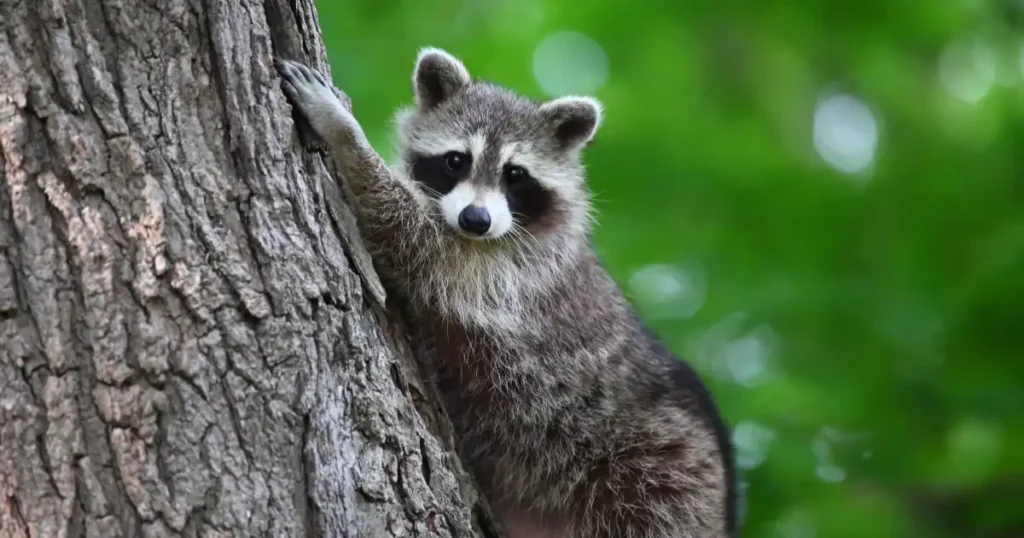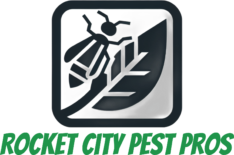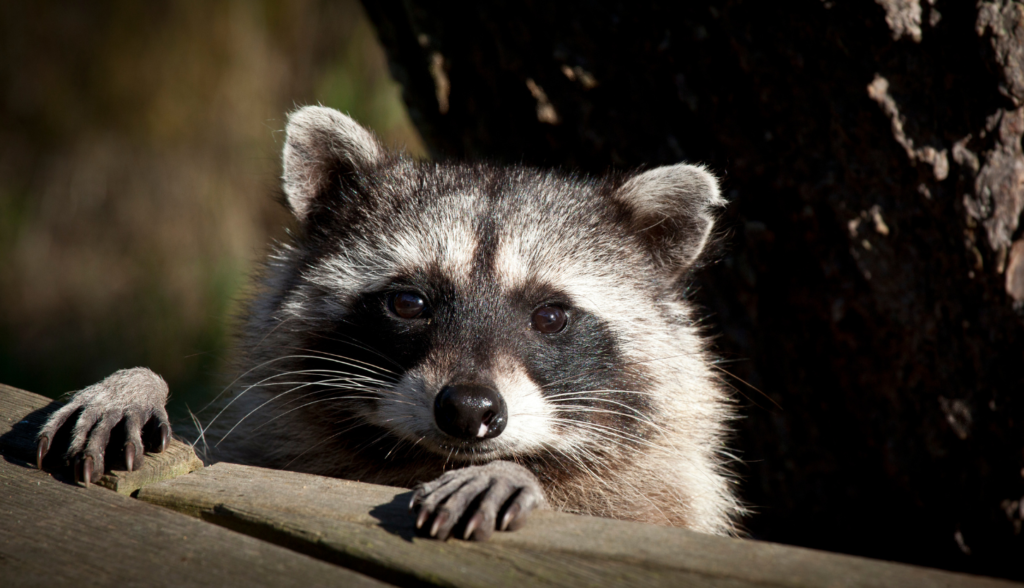Have you ever wondered whether raccoons pose a threat to your pets or even humans? This question is more common than you might think, given that raccoons are frequent visitors in both urban and rural areas. Their adaptability and omnivorous diet allow them to thrive virtually anywhere. Understanding their behavior is crucial for safeguarding your pets and yourself.
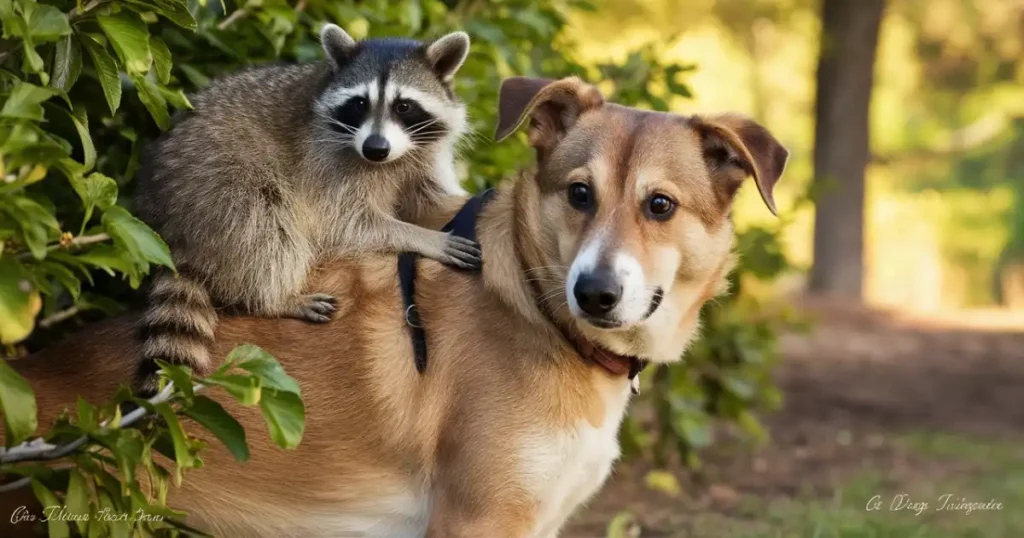
Raccoons and Their Behavior
Before delving into the risks and issues associated with raccoons, it’s essential to understand their behavior. Raccoons are nocturnal creatures, mostly active during the night. They are skilled climbers, diggers, and swimmers, which makes them highly adaptable.
Characteristics of Raccoons
Raccoons possess keen senses, particularly their sense of touch. Their front paws are incredibly dexterous, allowing them to manipulate food and open containers with relative ease. This adaptability often brings them into close contact with human environments.
Natural Habitat and Encroachment
Naturally, raccoons live in wooded areas, but they often venture into urban areas in search of food. Their diet is highly varied, including fruits, insects, small mammals, and even garbage. This diet versatility contributes to their widespread presence, making encounters with humans and pets more likely.
Will Raccoon Attack Dogs?
One of the primary concerns for pet owners is whether raccoons will attack dogs. To answer this, we need to delve into raccoon behavior, circumstances under which they might feel threatened, and the types of interactions that are possible.
Circumstances Leading to Attacks
Raccoons are generally shy and will avoid confrontation with dogs. However, they are also fiercely protective of their territory and young. If a raccoon feels cornered or threatened by a dog, it might attack to defend itself.
Factors Influencing Interaction
Several factors can influence the likelihood of a raccoon attacking a dog:
- Size of the Dog: Smaller dogs are more vulnerable as they may be mistaken for prey or appear less intimidating.
- Presence of Food: If a raccoon encounters a dog near a food source, the raccoon might become aggressive defending its meal.
- Dog’s Behavior: A curious or aggressive dog is more likely to provoke a defensive response from a raccoon.
Potential Hazards
The potential hazards of a raccoon attack on a dog include:
- Physical Injuries: Bites and scratches can lead to significant injuries.
- Infections: Raccoons can carry various pathogens, including bacteria from their saliva that can infect dog wounds.
- Rabies: One of the most severe risks, although relatively rare, is the transmission of rabies.
Preventive Measures
To minimize the risks, keep dogs on a leash during walks, especially at night. Secure trash bins and eliminate attractants such as leftover pet food or accessible compost piles.
Will Raccoon Attack Cats?
Cats, being natural hunters, often run into raccoons during their nocturnal wanderings. While cats can sometimes fend for themselves, it’s important to understand the dynamics of these encounters.
Typical Interactions
Raccoons and cats generally avoid each other. However, similar to interactions with dogs, if a raccoon feels threatened or cornered, it might defend itself aggressively.
Risk Factors
- Territorial Nature: Both raccoons and cats can be territorial. A raccoon might attack if it perceives the cat as a threat to its territory or young.
- Food Competition: Raccoons might become aggressive if they feel the cat is a competitor for food resources.
- Health Risks: Raccoons carry diseases like feline distemper and toxoplasmosis, which can be transmitted to cats.
Minimizing Risk
Keep cats indoors or provide supervised outdoor time. This reduces the chance of encountering raccoons and subsequent conflicts. Ensure pet food is not left outside overnight, and secure possible raccoon shelters such as sheds or garages.
Will Raccoon Attack Humans?
Although less common, there are instances where raccoons have attacked humans. Understanding when and why these attacks occur can help mitigate the risk.
Situations Leading to Human Attacks
Raccoons usually avoid human contact. However, specific situations might lead to aggressive behavior:
- Feeling Threatened: Raccoons may attack if they feel cornered or threatened by human presence.
- Rabies: A raccoon infected with rabies may display unusual aggression and attack unpredictably.
- Feeding: Raccoons accustomed to being fed by humans might become aggressive when food is not provided.
Risks and Consequences
Human attacks are rare but can result in injuries and disease transmission:
- Physical Harm: Bites and scratches can cause severe injuries and infections.
- Disease Transmission: Raccoons carry several diseases that can be harmful to humans, including leptospirosis, raccoon roundworm, and rabies.
Safety Precautions
Avoid approaching raccoons, especially if they appear unusually bold or lethargic, as these can be signs of rabies. Never feed raccoons, as this encourages dependence and can lead to aggressive behavior. If a raccoon is found in your home, contact animal control professionals to safely remove it.
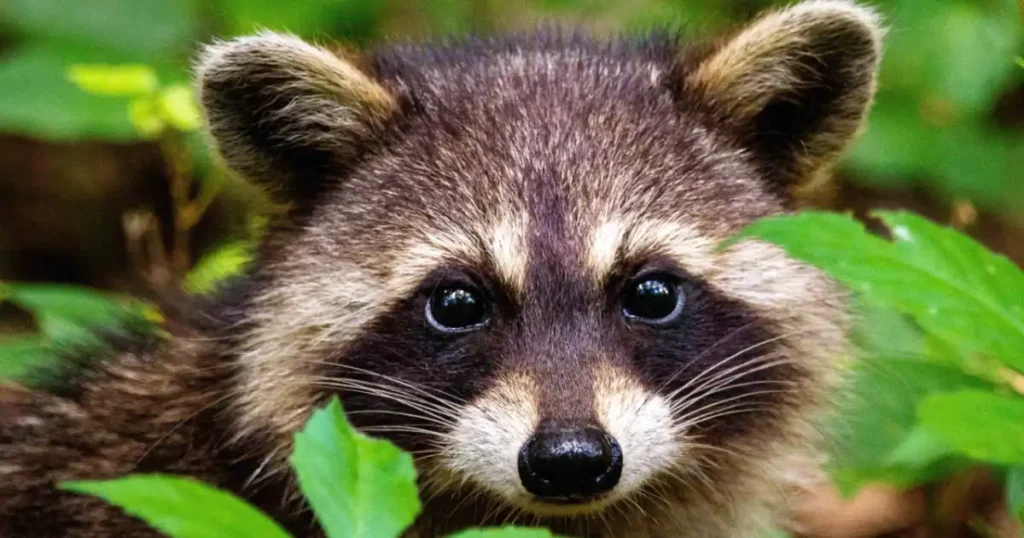
Understanding the Risks and Issues
To better understand the risks and issues associated with raccoons, we’ll examine some prevalent concerns ranging from disease transmission to property damage.
Disease Transmission
Raccoons are known carriers of several diseases, some of which can affect humans, dogs, and cats. Here are the key diseases to be aware of:
| Disease | Description | Affected Species | Prevention Tips |
|---|---|---|---|
| Rabies | A viral disease affecting the central nervous system. | Humans, dogs, cats | Vaccinate pets, avoid wild raccoons, secure trash. |
| Leptospirosis | A bacterial disease that can lead to kidney damage. | Humans, dogs | Clean areas contaminated by raccoons, secure water sources. |
| Canine Distemper | A viral disease affecting canines, not transmissible to humans. | Dogs | Vaccinate dogs, avoid contact with raccoons. |
| Raccoon Roundworm | A parasitic infection that can cause severe neurological damage. | Humans, dogs, cats | Avoid contact with raccoon feces, wash hands thoroughly. |
Understanding these diseases helps in taking preventive measures to safeguard your health and that of your pets.
Property Damage
Raccoons are notorious for causing property damage, often in their quest for food or shelter. Common issues include:
- Garbage and Compost: Raccoons can overturn trash bins and scatter garbage, creating a mess and potential health hazards.
- Home Invasions: They might enter attics, basements, or sheds, causing structural damage and contaminating spaces.
- Garden Raids: Raccoons can wreak havoc on gardens, digging up plants and eating fruits and vegetables.
Legal Implications
In many regions, raccoons are considered protected wildlife. This designation can complicate removal efforts and may require professional intervention. It’s important to familiarize yourself with local regulations to ensure compliant and humane handling of raccoon issues.
Effective Prevention Strategies
Now that we understand the risks and issues, it’s vital to focus on prevention strategies to minimize the likelihood of raccoon encounters.
Securing Your Home and Property
Implement practical steps to make your home less attractive to raccoons:
- Secure Trash Bins: Use raccoon-proof trash bins with tight-fitting lids.
- Eliminate Food Sources: Avoid leaving pet food or bird seed outside overnight.
- Seal Entry Points: Make sure attics, basements, and sheds are securely closed off with no easy access points for raccoons.
- Garden Protection: Use fences or netting to protect gardens from raccoon raids.
Humane Deterrence Methods
Employ humane methods to deter raccoons from your property:
- Motion-Activated Sprinklers: Startle raccoons without causing harm.
- Natural Repellents: Use substances raccoons find unappealing, such as ammonia-soaked rags or commercial repellents.
- Noise and Light: Ensure outdoor lighting and noise can dissuade nocturnal visits.

When Professional Help is Needed
In certain situations, handling raccoons without professional assistance may not be safe or effective. Recognize when to call in experts:
Trapping and Removal
If raccoons have settled in hard-to-reach areas like attics, professional trappers can safely capture and relocate the animals. Using professionals ensures humane treatment and compliance with local wildlife regulations.
Inspection and Repairs
Professionals can also inspect your property for potential entry points and recommend or perform necessary repairs to prevent future infestations. This can include sealing holes, repairing vents, and fortifying weak structures.
Conclusion
Raccoons may pose various risks to dogs, cats, and even humans, primarily through defensive attacks and disease transmission. However, with a combination of preventive measures, awareness, and professional help when needed, these risks can be effectively managed. By understanding raccoon behavior and taking proactive steps, you can protect your pets and property from unwanted raccoon encounters.
Your vigilance and preparedness will go a long way in creating a safe environment for you and your pets, keeping raccoon-related issues at bay.
